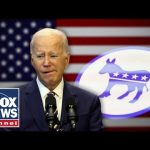In the world of international politics, few topics ignite debate as fervently as the issue of nuclear proliferation, especially when it comes to Iran. Recently, a correspondent raised an intriguing issue during a segment: Iran’s willingness to negotiate on numerous fronts, yet standing firm on their nuclear program, specifically their enrichment of uranium. It seems we have a classic stalemate, one that echoes the past dealings between the U.S. and Iran, particularly during the Obama administration. The fundamental question remains: can Iran be permitted to maintain their nuclear capabilities without the world holding its breath?
The conversation shifts to the figure of Donald Trump, whose approach seems to stand in stark contrast to his predecessors. While several past presidents have made promises regarding Iran’s nuclear ambitions, Trump is noted for being a man of action. He has a reputation for actually following through on what he declares. Anyone who remembers the controversy over moving the U.S. embassy to Israel knows that when Trump says he will achieve something, he usually does it. Now, the central concern revolves around Trump’s potential to confront Iran’s nuclear aspirations if he returns to power.
With Trump’s unique style, one thing is evident: he is no isolationist. Instead, his administration was marked by decisive action against threats abroad, including tackling ISIS and taking a strong stance against Iran. The discussion highlights a series of bold moves made during his presidency, from military strikes against Syria when it used chemical weapons to cyberattacks aimed at Russian interference. With such a record, Trump has displayed a willingness to use military force to protect American interests, something that has seemingly given adversaries like Iran pause for thought.
Why, then, is Iran now returning to the negotiating table? The answer may lie in their wariness of the Trump presidency. When Biden took office, Iran was less cooperative as they were benefiting from the cash influx from negotiations. However, the threat of a tough Trump return looms large over their nuclear ambitions. It appears that Iran is eager to buy time, hoping to maintain their uranium enrichment capabilities while waiting for the political landscape to shift. Yet, as observers point out, this is a high-stakes game where the consequences of miscalculation could be catastrophic.
So, what does this all mean for the future? If Trump does indeed reclaim the presidency, the expectation is that he will approach Iran with the same steadfastness and strategic pressure that characterized his previous term. The hope expressed by many is that he will not fall for Iran’s attempts at diluting concerns over nuclear capability. The conversation serves as a powerful reminder: while the world watches and waits, the stakes are higher than ever, and leaders must tread carefully in a landscape filled with complex challenges. Thus, as the proverbial chess match continues, folks are left to ponder who will make the next move—and what it might mean for the future of global security.




